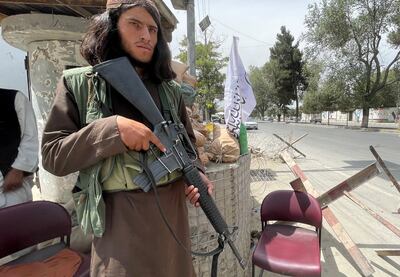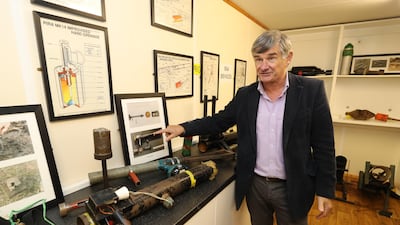A retired senior member of Ireland's Defence Forces who helped train Afghan soldiers says he will hand back a US medal because of Joe Biden's decision to withdraw American troops from the country.
Ray Lane, a former lieutenant colonel and globally renowned expert in improvised explosive devices, said he will return the medal to the US embassy in Dublin over the country's "outrageous" treatment of Afghans.
Mr Lane first travelled to Afghanistan a year after the US-led invasion in 2001 and spent seven years there. He helped educate the US, Nato, the Afghan public and the country's security forces about the dangers of IEDs.
Despite the acclaim for his important work, Mr Lane says he will now return the award.
“When I left Afghanistan, I was awarded a meritorious medal, which they don’t normally give to non-Americans,” he told The Irish Times. “I am going to send that back to the US embassy now.”
“Nato and America have walked away from those people as if they don’t exist. I think it’s outrageous,” he said.

Mr Lane said he was not shocked at how quickly the Taliban took over Kabul.
The previous pride he felt by serving Nato troops has now evaporated.
“I wore the Nato logo in Afghanistan with pride but it’s gone now. Ireland should have nothing to do with it," he said.
“They promised people they would bring a standard of living and democracy and health and education, and they have failed, sadly.”
“Life out there at that time meant we could go to restaurants every night and mix with the Afghan people in uniform and get on great with them,” he said.
“Then Nato came in and when I went back in 2009, we had to camouflage our faces, weapons ready to fire, with absolutely no connection with the local people.
“The good side is that I was aware of the progress being made for children and women and the hospitals, and I was involved myself in training the Afghan army in certain aspects.
“That seemed to be going reasonably well. The last thing I expected was for the Americans to make a decision to pull out and when I heard that, I was absolutely horrified.
“It’s a dangerous country and when I went there I was always concerned about safety, but I believed we were doing the right thing.
“I found we were making a difference, we had specific jobs in relation to improvised explosive devices, and protecting our own troops and the local people.
“We had a plan on how we would get through to local people and to me it wasn’t perfect, by any means, but it was a lot better than what it had been like for some of the people.”


